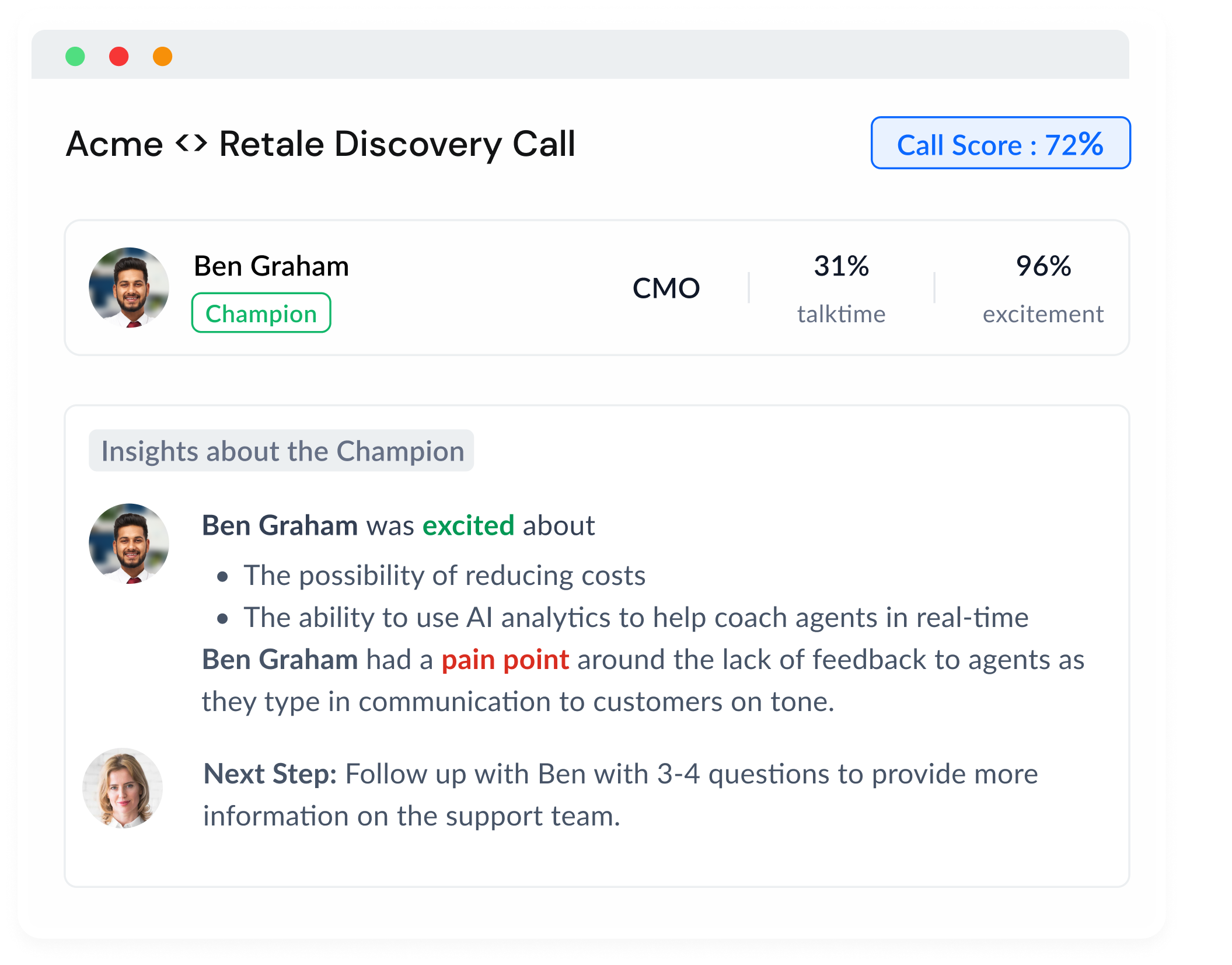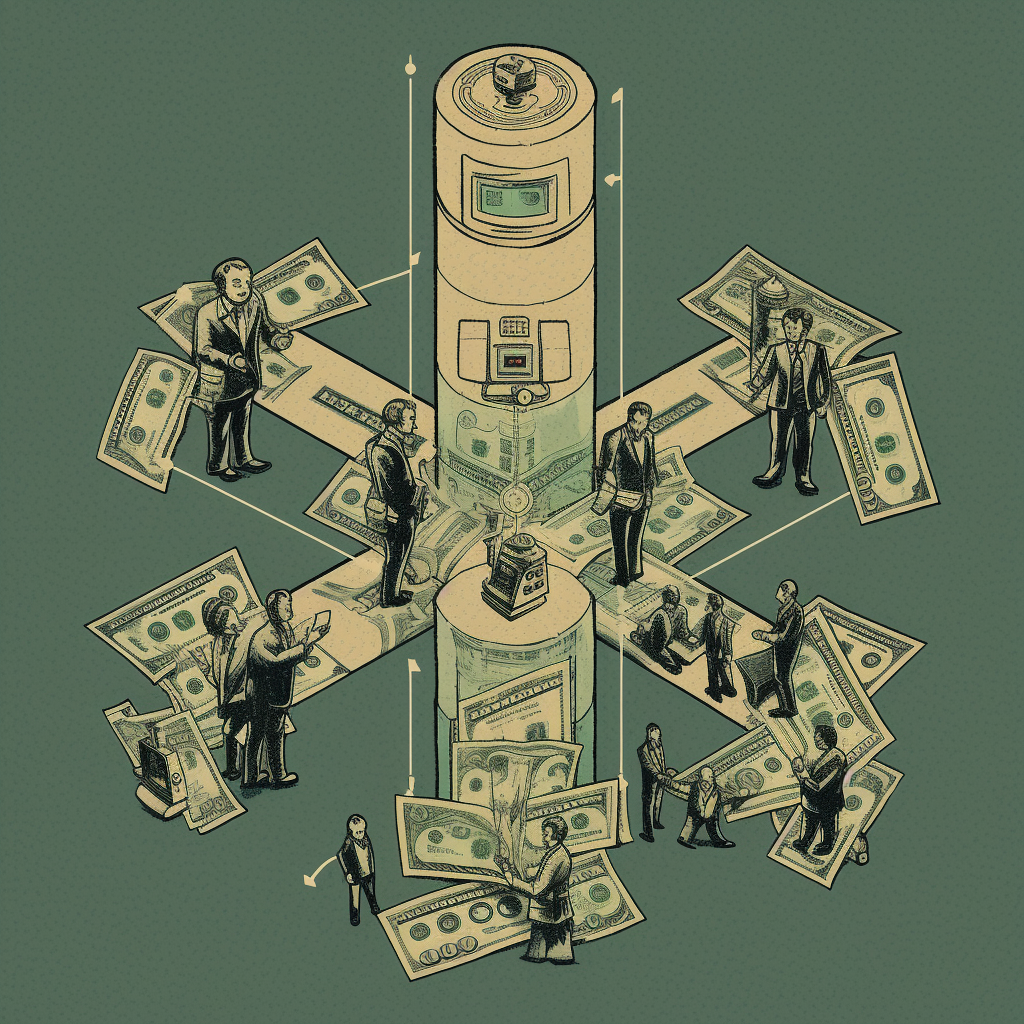In the realm of sales, every conversation counts. It's these exchanges that pave the way toward successful deals, fostering relationships that are key to business growth. Sales calls, a vital part of this process, can offer invaluable insights when reviewed and analyzed. But here's the catch – the recording of these calls is governed by various laws that can be a legal minefield if not properly understood.
In this comprehensive guide, we will walk you through the complexities of call recording laws, explore their implications on sales conversations, and delve into how AI-powered tools like Sybill can help navigate this legal landscape while optimizing your sales performance.
Why Should Sales Professionals Care About Call Recording Laws?
Sales calls are a treasure trove of information. They can help understand a potential client's needs, gauge their reactions, and tailor your services accordingly. They also offer a chance for introspection, allowing sales professionals to review their performance and identify areas of improvement.
However, the act of recording these calls isn't free of legal considerations. Laws vary greatly from region to region, and non-compliance can lead to serious legal consequences. This makes understanding call recording laws an absolute necessity for sales professionals.
Understanding the Two-Party Consent vs. One-Party Consent Debate
To kick things off, let's clear the air on one of the most debated topics in call recording laws: the difference between one-party consent and two-party consent states.
One-Party Consent States: What You Need to Know
In one-party consent states, only one person involved in the conversation needs to give consent for the call to be legally recorded. In other words, if you're a sales rep in a one-party consent state, you can legally record your calls without informing the other party or obtaining their permission.
However, it's important to note that just because it's legal doesn't mean it's always ethical or in line with best practices. If you're using Sybill's multimodal intelligence engine, you already know that building trust with your buyers is essential. So, while one-party consent may be the law, consider the potential impact on your relationship with your clients before hitting the record button.
Two-Party Consent States: Playing It Safe
In two-party consent states, both parties involved in the conversation must give their permission before the call can be legally recorded. This means that as a sales rep, you must inform your clients that the call is being recorded and obtain their consent.
Not only is this a legal requirement, but it also helps build trust with your clients by being transparent about your intentions.
International Call Recording Laws: Exploring Global Regulations
As a sales professional in the digital age, you're likely dealing with clients from around the globe. And with international sales comes the responsibility of understanding and complying with call recording laws in different countries.
European Union and GDPR: Privacy is Paramount
The General Data Protection Regulation (GDPR) has significantly impacted call recording practices in the European Union. GDPR mandates that any recording of personal data (which includes call recordings) must have a lawful basis and be explicitly disclosed to all parties involved.
Additionally, GDPR requires businesses to implement data protection measures to ensure the security of recorded calls. Failing to comply with these regulations can result in hefty fines.
Asia-Pacific Region: Diverse Rules Across Borders
Call recording laws in the Asia-Pacific region vary greatly from country to country. For example, in Australia, call recording is governed by both federal and state laws. Under the federal Telecommunications (Interception and Access) Act 1979, at least one party must be aware of the recording, while some states require all parties to consent.
In Japan, call recording is generally permitted as long as one party consents. However, the Act on the Protection of Personal Information (APPI) imposes specific requirements for handling personal data, which can impact the storage and management of recorded calls.
Given the diverse legal landscape across the Asia-Pacific region, it's essential for sales reps to research call recording laws in each country they do business with to ensure compliance.
United States: Varies by State
Call recording laws in the United States vary by state. Some states require the consent of all parties involved in a phone call or conversation before recording it, while others only require the consent of one party. Federal law permits recording phone calls and conversations with the consent of at least one of the parties, unless there is a reasonable expectation of privacy.
The states that have two-party consent laws are California, Connecticut, Florida, Illinois, Maryland, Massachusetts, Michigan, Montana, Nevada, New Hampshire, Pennsylvania, and Washington. The rest of the states have one-party consent laws, but some of them have special provisions or exceptions that you should be aware of.
Consent can be obtained by verbal or written notification before the recording is made, or by an audible beep tone repeated at regular intervals during the call1. If you are calling from a one-party consent state to a two-party consent state, the two-party law takes precedence.
Choosing the Right Call Recording Solution for Sales Reps
Now that you understand the importance of call-recording laws, let's talk about how to choose the right call-recording solution. When evaluating different options, keep in mind these key features:
- Consent Management: The solution should provide tools or guidance to manage consent from all parties involved in a call.
- Notice management: The solution should provide tools or guidance to manage notice to all parties involved in a call.
- Data security: The solution should provide data security features to ensure the call recordings are securely stored and accessed only by authorized personnel.
In addition to these features, it's also important to consider whether the call recording solution integrates with the tools you use to conduct business, such as Zoom or other video conferencing platforms.
Sybill is a call recording platform that goes beyond the basic features and handles call summarization, generation of follow-up emails, and CRM auto-fill as well. It makes it easy to let the other parties know that the call is being recorded by joining as a separate participant in each call with an explicit name of “[FirstName]’s Sybill Notetaker” to make it clear that there’s a bot in the call. It securely stores and manages call recordings.
Expert Tips and Best Practices
Legal compliance is crucial, but it's not the only factor to consider when recording calls. Implementing best practices can help you make the most of your call recordings while maintaining strong relationships with your clients.
Clearly Announcing Call Recordings: Transparency is Key
Regardless of the legal requirements, it’s a best practice to inform your clients that the call is being recorded. This transparency fosters trust and allows your clients to feel comfortable during the conversation. Plus, it ensures you're covered in case of cross-border calls with varying legal requirements.
Implementing Call Recording Processes: Consistency Matters
Establish a consistent call recording process within your organization. Consistency not only helps you stay compliant with relevant laws but also makes it easier for your team to manage, review, and learn from recorded calls.
Storing and Managing Recorded Calls: Security and Accessibility
Ensure that your recorded calls are stored securely, with access limited to authorized personnel. Robust security measures protect both your clients' privacy and your organization's reputation. At the same time, make sure that your team can easily access relevant recordings for training and analysis.
Boosting Sales Success: The Power of Call Recordings for Reps
Call recordings offer numerous advantages for sales professionals, from improving your sales techniques to enhancing customer relationships.
Leveraging Recordings for Sales Training and Development
Recorded calls provide valuable insights into your sales performance, allowing you to identify areas for improvement and hone your skills. Sybill's multimodal intelligence engine takes this to the next level by analyzing your calls and providing real-time feedback on both verbal and non-verbal cues.
Enhancing Customer Relations Through Recorded Calls
Call recordings can also serve as a reference for client preferences and requirements, helping you tailor your future interactions to meet their needs. This personalization strengthens your relationships with your clients, increasing the likelihood of closing deals and fostering long-term partnerships.
Using Call Recordings for Legal Protection and Compliance
Having a record of your sales calls can help protect your organization in the event of legal disputes or compliance issues. By adhering to call recording laws and following best practices, you can ensure that your recorded calls are admissible evidence when needed.
The Future of Call Recording Laws: Anticipating Changes and Trends
As technology and privacy concerns evolve, call recording laws will continue to change. Sales reps must stay informed and adapt their practices accordingly.
The Impact of Emerging Privacy Regulations on Call Recording
New privacy regulations, such as California's Consumer Privacy Act (CCPA), may impact call recording practices by imposing additional requirements or restrictions. Sales reps must monitor these developments and adjust their call recording policies to maintain compliance.
Technological Advances and Their Influence on Call Recording Laws
As technology continues to advance, so too will the ways in which we record and analyze calls. For example, artificial intelligence (AI) and machine learning (ML) are revolutionizing call analytics, offering deeper insights into customer behavior and sentiment. As these technologies become more prevalent, it's possible that call recording laws will be updated to address the unique challenges they present.
Conclusion: Staying Informed and Adapting to Call Recording Laws for Sales Success
Call recording is an invaluable tool for sales professionals, but it's essential to navigate the complex landscape of call recording laws to stay compliant and protect your business. By understanding the nuances of one-party and two-party consent, familiarizing yourself with international regulations, and implementing best practices, you can make the most of call recordings while maintaining strong relationships with your clients.
In today's fast-paced business world, it's essential for sales reps to use innovative tools like Sybill to optimize their sales outcomes. By using a call recording solution that aligns with best practices for compliance, sales reps can focus on what matters most - building strong relationships with buyers and closing deals.















.png)





